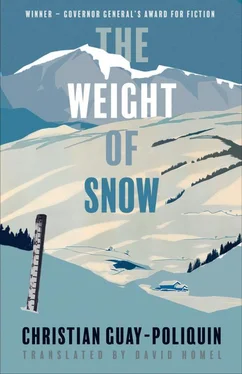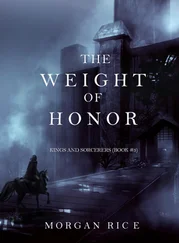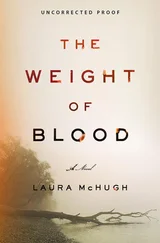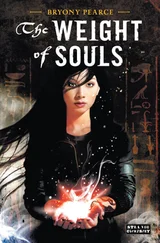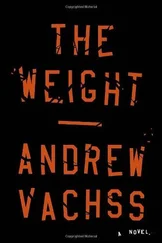I smile, but would rather play cards, maybe even for money.
I always knew you’d end up giving in, he goes back to his old refrain. If we can’t change things, we can always change the words that describe them. I’m not your doctor, I’m not your friend, and I’m not your father, understand? We’re spending the winter here, we have to get through it, and then it’s finished. I’m looking after you, and we’re sharing everything, but as soon as I can leave, you’ll forget about me. You’ll get along on your own. I’m going back to the city. Understand? My wife is waiting for me. She needs me and I need her. That’s my adventure, that’s my life, I have nothing to do here, this is all a big accident, a twist of fate, a terrible mistake.
He says that, then moves a piece on the chessboard and dares me to challenge him.
I always knew you’d end up giving in. No one can keep his mouth shut like that. Everyone turns back to words sooner or later. Even you. And soon, I’m telling you, you’re going to speak to me. You’re going to talk to me, even without a fire in a pot, even if I’m not a young veterinarian. You’re going to talk to me, understand? And you’re going to play chess with me. That’s what’s going to happen. That and no more. Now go ahead, it’s your move.
If you fly too low, the humidity will weigh upon your plumage and you will crash to the ground. If you fly too high, the heat of the sun will break your wings apart and you will plummet into emptiness. I’ve taught you that lesson twice, ten times, a hundred times. Because at your age, everyone thinks they are invincible. Maybe you think I’m old and a wet blanket, but remember that I know what you don’t. Once we take flight from this lifeless, hermetic place, you will gaze in wonder at the depth of the horizon. By then we will be far from here. By then we will be saved.
The icicles hanging from the roofline cut the landscape into vertical planes. The snow reflects the clear blue sky. The cold has stiffened the pine needles. A few flakes wander between sky and earth. I don’t know where they come from. They are carried on the wind, and never touch the ground. Like meteors going by at close range, but never reaching us.
Matthias does his calisthenics. He jumps up and down in place. His limbs are loose and his slender old body reacts to the impact with impressive flexibility. When he strikes his chest with the palm of his hand, the cavernous depth of his lungs is audible.
I watch him go through his paces and figure I am getting better. Soon I will be able to get out of bed. Pain is still a close companion, like a sleeping animal, but I have stopped needing pills to tolerate its presence by my side.
When he finishes his exercises, Matthias opens the trap door to the cellar and takes out some food.
I can give you a hand, I tell him.
He looks up. Hesitates. Maybe he thinks I want to deprive him of the privilege of passing the time by preparing the meals, but he ends up accepting.
Here, he says, bringing me a knife and a cutting board, take care of the vegetables for the soup, I’ll make the bread.
As I peel potatoes, I realize this is the first time I have made myself useful since I came here. I still can’t stand up and I’m not very skillful when it comes to cooking, but at least I’m doing something. Meanwhile, Matthias kneads the dough and whistles, though he really only pushes air through the spaces between his teeth. Maybe he is imitating the sound of rivers swollen with spring run-off. Or the icy wind whirling above our porch room.
As the soup simmers, the steam that rises into the air sticks to my window. With the cold outside, it forms a fine layer of frost. To see through I have to scratch an opening in the glass. A little porthole in the stained glass of crystals. As I look outside, Matthias tells me his father was a cook in the lumber camps. And that he was his assistant for a few years, after the end of the war.
I remember they used to leave once the rivers hit flood stage. Plenty of them were willing to brave the fast waters to drive the logs to the mills. None of them could swim, no one wore a life jacket, but all of them had a cross around their necks. They rode the floating logs with their hobnailed boots, their staff, and their songs. When a log-driver got swallowed up by the water and disappeared between the trunks, he could trust only his prayers. Sometimes his brothers managed to fish out his body before it got swept away by the current, but most of the time the rapids and the freezing water left no chance. Every evening, when they sat down at the table, they would reflect a moment, then eat everything set before them as if it was their last supper.
As the slabs of black bread cook on the stove and the scent of grilling flour fills the room, Matthias points toward the crucifix he hung above the front door.
I lift my eyebrows.
It’s ready, he says.
He serves us the soup and breaks a slab of bread in two. It’s hot, and steaming inside. I dip it into the soup and bite into it with gusto. As he recites some kind of grace, I challenge him with my mouth full.
We’re like the log-drivers you talk about. Only we don’t need a crucifix, we need a horseshoe.
Matthias stares at me a moment as if I didn’t understand. Then, slowly, his face brightens and he thanks me for sharing his daily bread.
Matthias helps me get to the rocking chair. Again, I am surprised by his strength when he holds me up. But I suppose I have never been so light, so frail.
I am sitting by the stove with my spyglass and a blanket. Matthias is close at hand, at the table. He threads a needle.
I have a new angle on the landscape. I still see the forest that stands without compromise above the snow. But from this point of view, I can make out the poles and electric wires that cross the fields and link us to the village. Those metal cables on which our lives were once suspended. Those conduits were invested with mysterious power. Those black lines on which a few birds are perched as if nothing had changed.
The sun is setting and the cold turns yesterday’s snow into a dazzling sheet. When I close my eyes, I see colours that don’t exist. When I open them, it is so bright I feel like I’m suffering from snow blindness.
As he darns a pair of jeans, Matthias asks me what I did before the blackout. He knows the answer, I’m sure.
I was a mechanic.
Like your father?
Yes, like my father.
And since the blackout, do you still consider yourself a mechanic?
I hold my breath a moment, and look at my hands, then my legs. With the accident and the power outage, all the time I spent underneath vehicles, my hands in oil and iron filings, is just a vague memory.
As he carefully ties off the thread, Matthias states that for him nothing has changed. He earned his living doing all sorts of things, and he has been married fifty-seven years.
I’ve always managed to get by. One more winter is not going to make a difference.
On those words, he sticks himself with the needle. He jumps to his feet, goes to the window, and changes the subject.
We’re going to have snow, he predicts, I can feel it.
For the moment, the sky is completely clear. I look out at the barometer and see the little branch pointing up, no hesitation there.
With his lips, Matthias sucks off the blood that blossoms like a pearl on his fingertip. I wonder if he understands what is happening. What is becoming of us. What awaits us. Maybe he has not grasped the magnitude of the blackout.
Unless I’m the one who’s completely lost his grip.
Читать дальше
